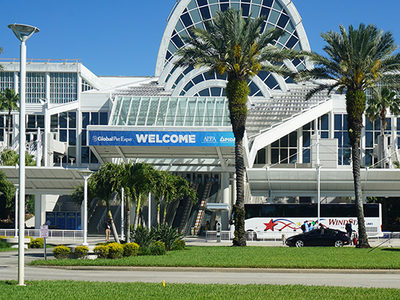SAN DIEGO – Petco on Nov. 13 announced it will be the first major pet retailer to stop selling dog and cat food and treats that contain artificial colors, flavors and preservatives by May 2019. Petco reported it will begin removing these items, which the company plans to donate, from its shelves as early as January, including products offered online.
"Some may question whether this makes good business sense, but putting pets' health first has always been the right thing to do for Petco,” said Ron Coughlin, CEO, Petco. “This is both a major step forward for pets and a natural next step on our journey to become a complete partner in total pet wellness. We hope the rest of the pet industry will join us on this path to better health for the pets we love."
The retailer has set definitive guidelines for what it will not sell in the future. Petco said the guidelines were developed by in-house and consultant veterinarians, nutritionists and wellness experts. The company defines artificial ingredients by the following standards:
- Color from artificial sources: any dye, pigment, or other substance that can impart color to a food that is not derived from a natural source.
- Artificial flavor: any substance, the function of which is to impart flavor, which is not derived from a spice, fruit or fruit juice, vegetable or vegetable juice, edible yeast, herb, bark, bud, root, leaf or similar plant material, meat, fish, poultry, eggs, dairy products, or fermentation products.
- Artificial preservative: chemical substances added to or sprayed on the outside of food to retard spoilage, deterioration, discoloration, or contamination by bacteria and other disease organisms. Does not include preservatives that are derivatives of natural compounds.
The comprehensive list of ingredients that do not meet Petco’s new nutritional standards can be found at the end of this article.
"We're inviting pet food companies to join us on this journey, even working hand-in-hand with some to pursue potential ingredient changes to meet our new stringent ingredient standards," said Nick Konat, co-chief merchandising officer, Petco. "In cases where an existing brand is unable to update some or all of their products to meet our criteria by May of 2019, we will not carry either specific products or the brand entirely – and we'll help pet parents affected by such a change to safely transition to a new food or brand that we believe is healthier for their pet."

This decision comes as pet nutrition, health and wellbeing become increasingly important to pet owners. According to an Oct. 2018 survey by Edelman Intelligence, 87% of pet owners said a diet free from artificial ingredients was important for their pets’ health and wellbeing. More than half (56%) of respondents reported the search for healthy products was confusing, while 47% said it was difficult.
With hopes of setting a new standard for pet nutrition in the retail environment, Petco also plans to launch the Petco Pet Wellness Institute in 2019, described as “a coalition of experts from all spectrums of pet health and wellness.” Through this committee, the company aims to stay informed and educated about the products it offers and how they affect pets’ health and wellbeing, and to share that knowledge with consumers through its product offerings and services.
"The goal here is superior health and well-being for the pets that bring so much love and joy to our lives," Coughlin said. "Our bold nutrition stance combined with our continued expansion of veterinary services in our stores are great examples of the many ways we're evolving to meet the needs of modern pet parents."
Below is Petco’s comprehensive list of ingredients that do not meet its new nutritional standards:
Artificial colors
- Labels that says "Artificial Colors"
- FD&C Blue No. 1
- FD&C Blue No. 2
- FD&C Green No. 3
- Orange B
- Citrus Red No. 2
- FD&C Red No. 3
- FD&C Red No. 40
- FD&C Yellow No. 5
- FD&C Yellow No. 6
- Titanium dioxide*
Artificial flavors
- Label just says “Artificial Flavors”
- Acetaldehyde (ethanal)
- Acetoin (acetyl methylcarbinol)
- Aconitic acid (equisetic acid, citridic acid, achilleic acid)
- Anethole (parapropenyl anisole)
- Benzaldehyde (benzoic aldehyde)
- N-Butyric acid (butanoic acid)
- d- or l-Carvone (carvol)
- Cinnamaldehyde (cinnamic aldehyde)
- Citral (2,6-dimethyloctadien-2,6-al-8, geranial, neral)
- Decanal (N-decylaldhehyde, capraldehyde, capric aldehyde, caprinaldehyde, aldehyde C-10)
- Diacetyl (2,3-butandeione). Ethyl acetate. Ethyl butyrate.
- 3-Methyl-3-phenyl glycidic acid ethyl ester (ethyl-methyl-phenyl-glycidate, so-called strawberry aldehyde, C-16 aldehyde)
- Eugenol
- Geranoil (3,7-dimethyl-2,6 and 3,6-octadien-1-ol)
- Geranyl acetate (geraniol acetate)
- Glycerol (glyceryl) tributyrate (tributyrin, butyrin)
- Limonene (d-, l-, and dl-)
- Linalool (linalol, 3,7-dimethyl-1,6-octadien-3-ol)
- Linalyl acetate (bergamol)
- 1-Malic acid
- Methyl anthranilate (methyl-2-aminobenzoate)
- Piperonal (3,4-methylenedioxy-benzaldehyde, heliotropin)
Artificial preservatives
- Benzoic acid - synthetic preservative
- Erythorbic acid
- Thiodipropionic acid
- Butylated hydroxyanisole (BHA) - synthetic preservative
- Butylated hydroxytoluene (BHT) - synthetic preservative
- Calcium sorbate - synthetic preservative
- Ethoxyquin - synthetic preservative
- Dilauryl thiodipropionate
- Methylparaben
- Potassium bisulfite
- Potassium metabisulfite
- Propylene glycol – derivative of antifreeze
- Propylparaben
- Sodium metabisulfite
- Sodium propionate - synthetic preservative
- Sodium sorbate
- Sodium sulfite
- Stannous chloride
- Sulfur dioxide
- TBHQ - Tertiary butylhydroquinone
(Source: https://www.petco.com/shop/en/petcostore/c/betternutrition-ingredients)
Keep up with the latest pet food trends on our Trends page.



